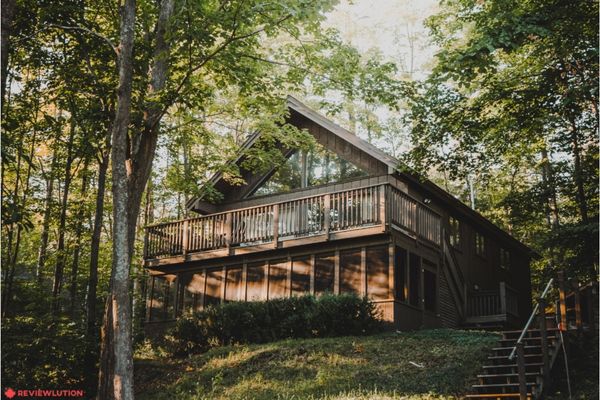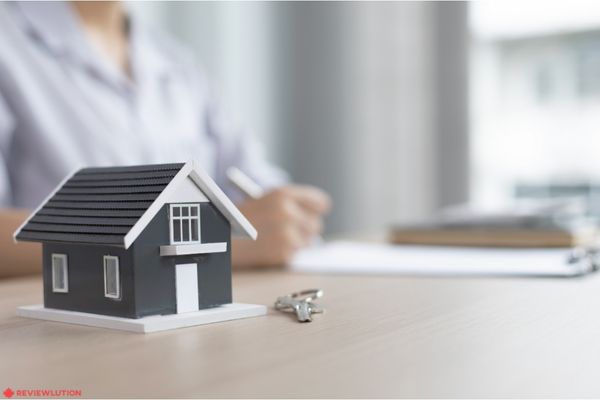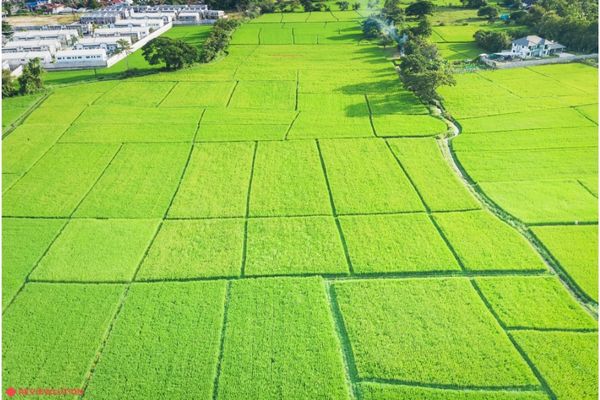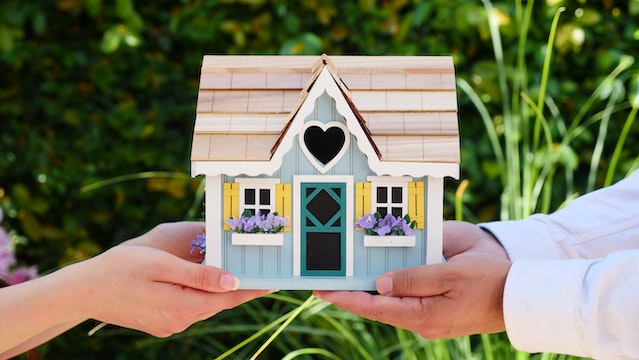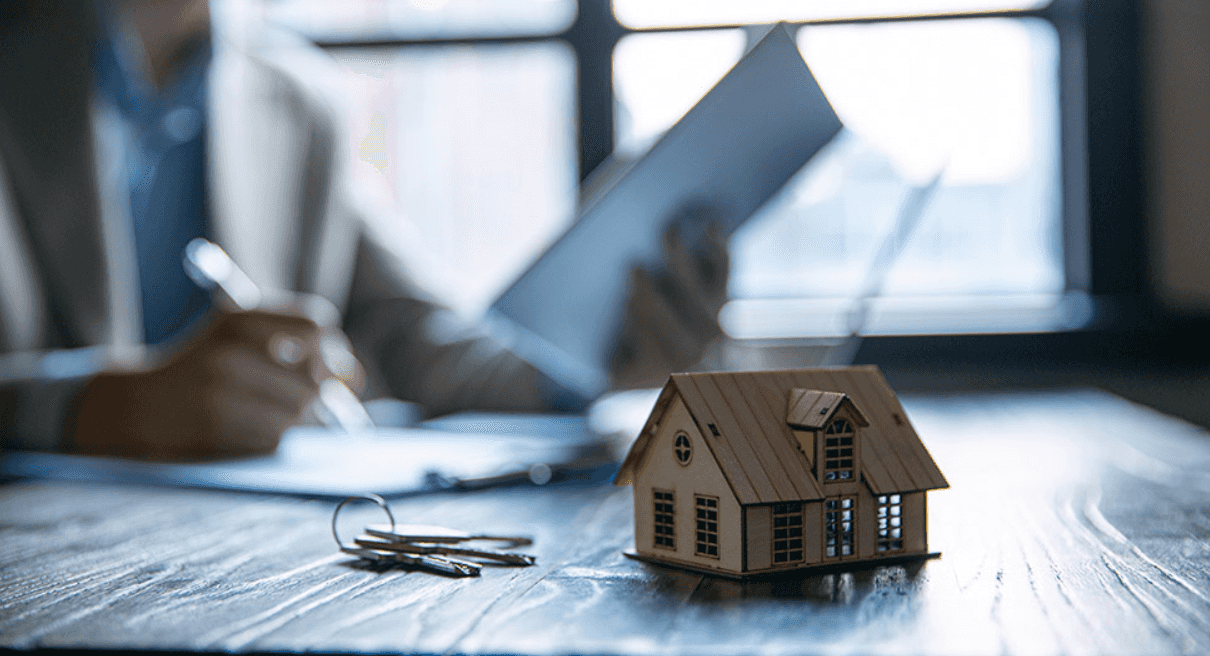How Much Does It Cost to Build a House in Ontario?
Looking to put down roots in your new Ontario home? While some people see buying houses as their preference, others decide to build them from scratch. This is mainly because constructing a home provides a baseline for ultimate customization, allowing you to tailor it specifically to your needs. But how much will it cost you?
Given that the total household debt in Canada amounted to $2.33 trillion in 2020, we gathered some information on the cost of building a house in Ontario along with some tips on reducing your expenses.
How Much Does It Cost to Build a House in Ontario?
On average, you should expect to pay around $240 per square foot when building a home in Ontario. Of course, these numbers may vary depending on the exact location, the type and size of the house itself as well as the complexity of the building plan.
In comparison, these numbers are somewhat lower than those found in British Columbia ($300) and Saskatchewan ($263). But even so, they outpace the averages in Nova Scotia and Manitoba, both coming in at $195 per square foot.
Among the most populous Canadian cities, Vancouver comfortably leads the race with a price range of $145-$265 per square foot. It’s closely followed by Calgary and Edmonton, both of which boast a price tag in the $125-$195 range.
On the other hand, Halifax features some of the lowest costs per square foot, ranging anywhere from $90-$150. Other notable names at the tail end of the list include Montreal ($105-$175) and Ottawa ($120-$200).
What Composes the Price Per Foot?
There are several different factors that influence the price per square foot when building a home in Ontario, including:
Building Permit Costs and Lay of Property
Based on the regulations in your area, you may be expected to pay anywhere from $10.000 to $30.000 for building and development costs. For instance, if your land in Ontario is in a low-grade area, expect construction to be somewhat more expensive because it requires more work in terms of boosting the grade and bringing in extra filling loads.
Size and Style of Your Home
The average size of a home in Canada comes in at 1.792 square feet. Of course, different families have different preferences and needs with regard to the scope of their homes, which may ultimately increase or decrease building costs. In any case, make sure you consider your sizing preferences when buying land in Ontario.
Construction Deadline
Time management can be tricky when it comes to construction, as there are plenty of external factors that might cause unexpected delays or interruptions. But if everything goes according to plan, it may take anywhere from 10 to 16 months to finalize construction.
Needless to say, complex shapes and designs might take a bit longer in terms of completion. Seeing as most people don’t think of a box-shaped house as their ideal home, this may be even more common than we realize.
Selecting a Contractor
If you’re keen on taking a DIY approach, you might save up some extra funds by acting as your own contractor. But if that’s not something that tickles your fancy, you should pay careful consideration to the type of contractor you select to manage the construction process.
Make sure you do your research on the basics, including the type of work the builder specializes in, company licensing and insurance as well as a glimpse into some of their most recent projects for reference.
How to Get an Estimate for Building a House?
If you’re not one to rely on speculation but rather appreciate more specific data, then getting a ballpark estimate for your specific plan might help to ease your mind. In general terms, there are two ways you can go about this:
Construction Cost Calculators
Thanks to the many benefits of recent technological advances, you can get a reasonable estimate through online calculators. Though these readings may not always be accurate and should be taken with a grain of salt, they’re convenient and affordable ways to get some insight into what to expect.
Getting a Personalized Quote
In order to paint a more reliable picture of the costs of building a home in Ontario, your best bet would be to consult with a builder. These professionals take into account all the specifics of your particular project, including on-site requirements, size and layout.
Word of advice – talk to several different builders so that you get a better understanding of what the average cost to build a house in Ontario is. In this way, you’ll be able to make an informed decision that best serves you and your financial needs.
How to Finance Building a House?
Once you’ve received your estimate and you’re willing to move forward, you’ll have to allocate the necessary funds to go through with the plan. In that case, one of the easiest things to do is to apply for a mortgage, which can go in one of two ways:
Completion Mortgage
With this type of mortgage, the funds aren’t transferred until after the building process is complete. This allows you to make any changes you might deem necessary, including the overall amount you need. These changes can be made at least 30 days before your home is completed.
Progress-Draw Mortgage
This one is loaned out in increments, with each sequential set of funds corresponding with the relevant needs of the project. The lender will determine the exact amount you will receive, based on the particular stage in construction.
Check out our selection of the best Canadian mortgage lenders to find the most affordable rates!
Managing Construction Costs
If you consider the initial expenses, it’s easy to see that building a house in Ontario is a bit cheaper – by around $7.000 – than buying a ready-made one. Naturally, you can cut down on these prices by paying close attention to the type of construction work you want. Here’s a quick look at some of the building blocks in the construction world:
| Construction Type | Average Cost |
| HVAC | $13.000 – $17.000 |
| Plumbing | $8.000 |
| Foundation | $40.000 – $48.000 |
| Electrical Wiring | $13.000 |
| Roof | $4.750 |
| Exterior Doors | $700 a piece |
| Windows | $1.000 a piece |
| Wall Sidings | $8.000 – $20.000 |
| Flooring | $4 – $15 per square foot |
Other ways that you can lower construction costs include:
Opt for a Smaller Home
The math here is simple – the larger the home, the greater the workload and resources required to finalize the project. If you want to save up on costs, design a smaller home that would result in minimal construction costs, all while giving you a warm and comfortable space to live in.
Save Up On Aesthetics
Believe it or not, interior finishes and decorations have a tremendous impact on the overall spending. Those of you that don’t have an eye for a particular interior decor style should go for minimal and simplistic designs that don’t come with a hefty price tag.
Reuse and Recycle
Throughout the years, there’s been a lot of talk about recycled items and their importance to the environment. But just as they’re favourable to the world around us, they can bring multiple benefits to our day-to-day lives as well.
Using eco-friendly materials gives you the chance to save up money and add some personality to your home. That sounds like a win-win scenario, wouldn’t you agree?
Other Options for Custom-Built Homes
Despite the general benefits, house hunting comes with its own challenges. If you don’t exactly have the funds for building or buying a house in Ontario, a home renovation can help you reduce the costs while helping you build home equity.
Truth be told, you don’t have to do a complete rebuild in order to refresh your home. Simply patch some things up here and there and you should notice an almost instant transformation of your personal space.
How Much Does Land Cost in Canada?
Buying vacant land in Ontario is the first step toward building the home of your dreams. All you have to do is purchase the specific land you want to build on and you’re good to go. Here’s a brief rundown of all the basics to help get you started:
Down Payment Cost of Land
In most cases, you’ll have to pay a 30% – 50% down payment when buying property in Ontario. Bear in mind that buying raw land might have higher down payment requirements and interest rates. This can make getting a loan a bit more complicated but certainly manageable.
Average Value Per Acre
A single acre of land in Ontario has an average value of around $11.905, the highest number in the country. Despite its higher price range, Ontario is still one of the most popular provinces to live in, mainly due to the higher living standards in the area.
For comparison, Saskatchewan and Manitoba have the most affordable land prices across Canada, coming in at $1.601 and $2.281 per acre. New Brunswick and Nova Scotia trail behind with $2.865 and $2.359, respectively.
Types of Land in Ontario
If you want to buy land in Ontario, you’ll have the chance to choose from three primary land types, each one bearing its own set of advantages.
Raw Land
This refers to uncharted territories that haven’t been tampered with before. Apart from not having any visible structures on the surface, these territories don’t have any utilities such as electricity or a water supply.
It’s up to you to take matters into your own hands and tailor the area to your liking. On the bright side, these rank among the cheapest lands in Ontario, thanks to their limited perks and features.
Vacant Land
Vacant land may be partially or fully serviced with all the essentials, including electricity, water, road service and additional improvements. Permanent structures or facilities are unlikely to be found in these areas, giving you the chance to modify the space as you wish.
Crown Land
Finally, crown land is a public area owned by the provincial government. And as such, it comes with certain restrictions and conditions which need to be met to use the land. Most of Northern Ontario consists of crown land, whereas the south mainly consists of privately-owned areas.
What to Look For When Buying Land in Ontario?
Despite the higher land prices in Ontario, homeowners seem eager to get their share of property in the area. As real estate markets reach their all-time selling speed highs, it’s essential to know which aspects to look into before putting your money on a portion of Ontario’s land.
Zoning Requirements
These parameters definite the maximum building weight, lot coverage and recommended distance from the sidewalk. You can also find additional restrictions regarding renovations and add-ons such as garages, pools and decks.
Subdivider’s Agreement
Property lines in Ontario often come with what’s known as the Subdivider’s Agreement. It contains specifications regarding the appearance of spacious, multi-unit residencies. For instance, it may require that your home’s exterior is all brick or stone or include limitations to how far the garage can be built.
Utilities
As mentioned previously, the patch of land you buy may or may not come with all the necessary utilities required to lead a comfortable life. It’s your job to take the appropriate steps to ensure that your property is well-equipped and fully functional before turning it into a permanent residence.
Finishing Thoughts
Starting afresh by building a new home is a challenging yet thrilling prospect. While it’s not exactly a cheap investment, the freedom to fully customize it to your liking and turn it into your dream home makes it all worth it in the end.
Just make sure you’ve done your homework on the way you want your home to be constructed as well as the people you trust with turning your dream into reality.
FAQ
Generally speaking, the average cost to build a house in Ontario is approximately $240 per square foot.
Some of the steps to buying a house in Ontario include building your credit score and saving for a down payment, determining where to buy, and checking affordability and finding a real estate agent to help you look for properties in your price range.
Yes, you may receive funds to purchase a particular piece of land, with an initial down payment of 30% – 50%. These numbers may vary depending on the land you’re willing to purchase.

